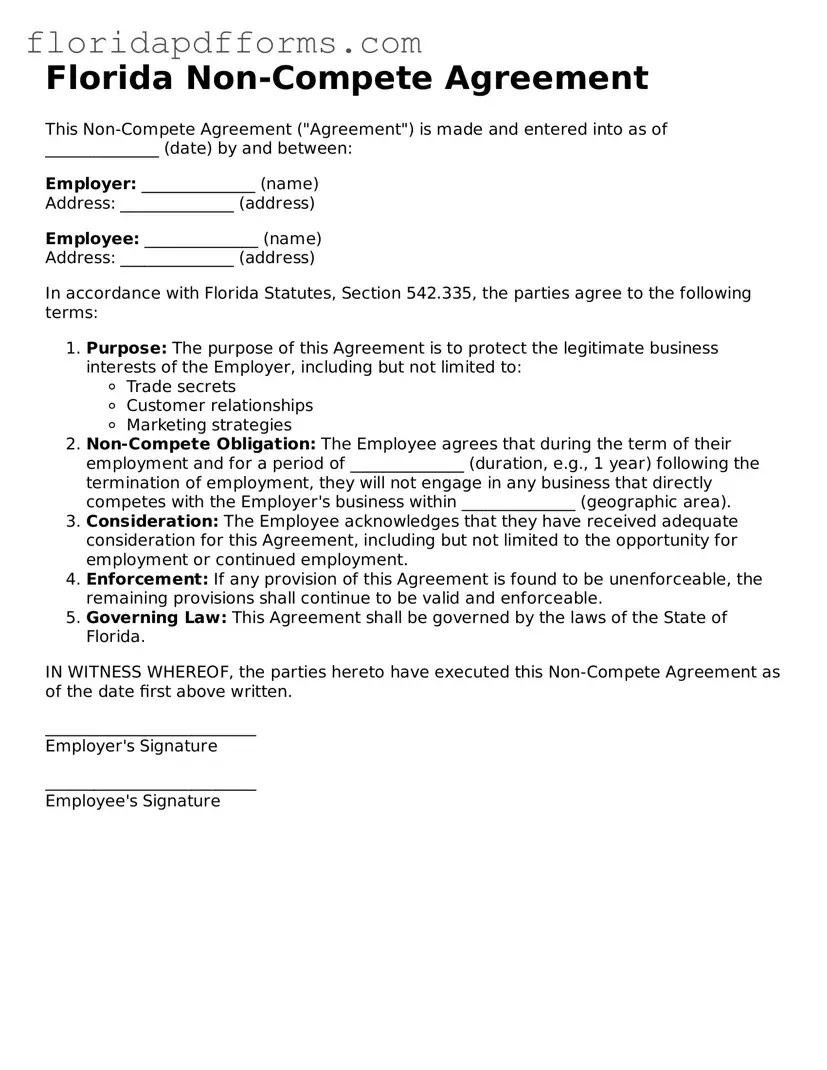Official Non-compete Agreement Template for Florida
A Florida Non-compete Agreement is a legal document designed to restrict an employee's ability to work for competitors or start a competing business after leaving their current employer. This agreement aims to protect the employer's business interests and trade secrets while balancing the employee's right to seek employment. Understanding the nuances of this form is crucial for both employers and employees navigating the complexities of the job market in Florida.
To ensure you have the right protections in place, consider filling out the Non-compete Agreement form by clicking the button below.
Modify Non-compete Agreement Now

Official Non-compete Agreement Template for Florida
Modify Non-compete Agreement Now

Modify Non-compete Agreement Now
or
⇓ Non-compete Agreement File
Don’t stop halfway through your form
Finish your Non-compete Agreement online with quick edits and instant download.